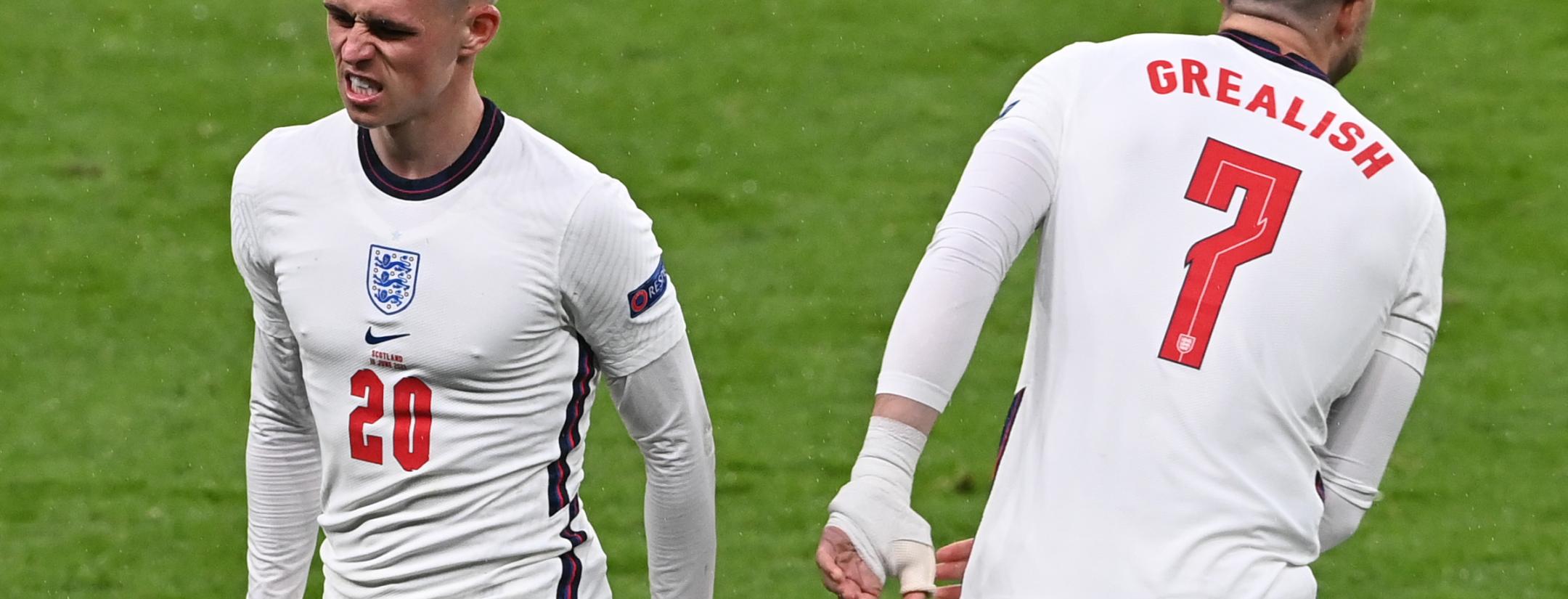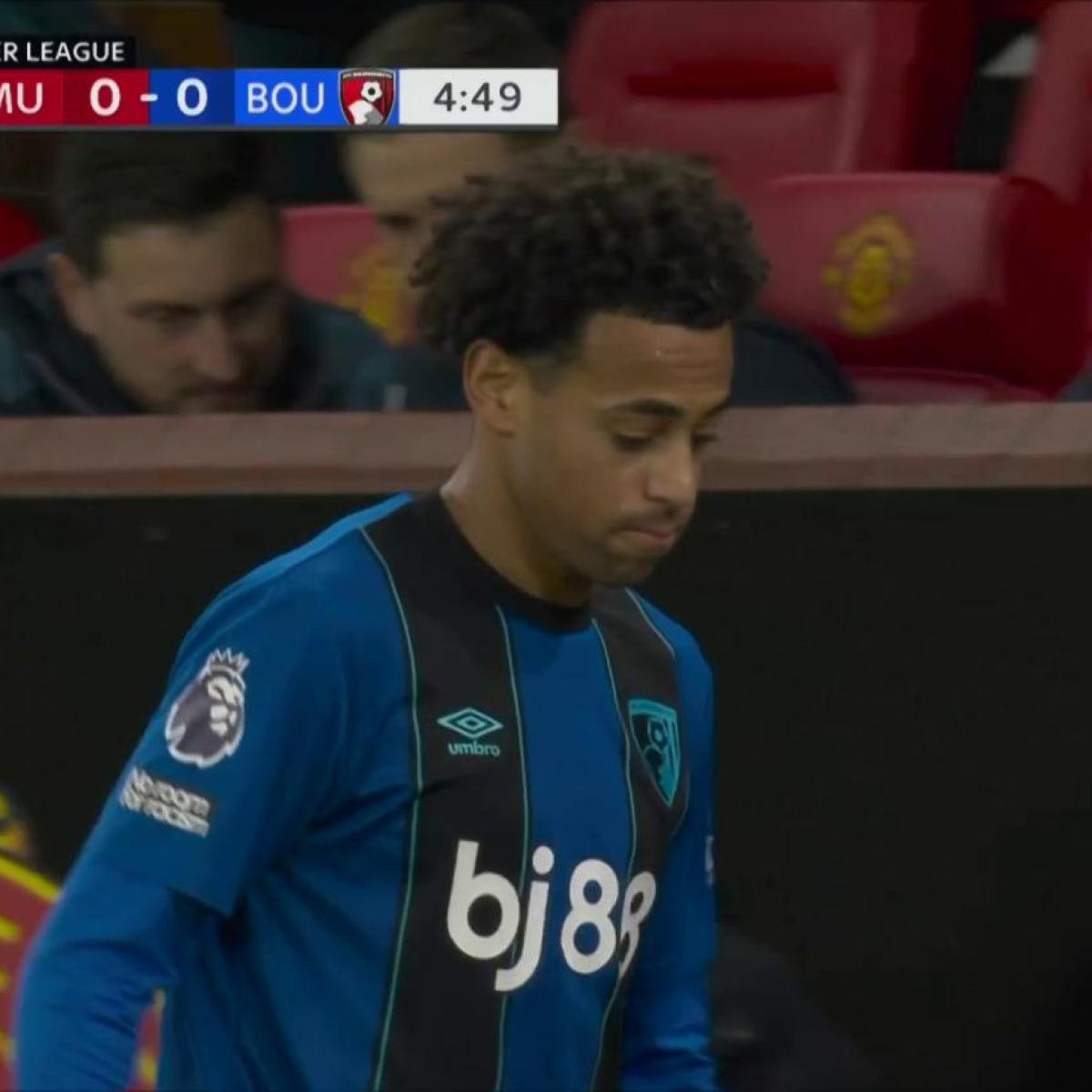With two matchdays already complete, England's footballing template has been executed perfectly so far at Euro 2020.
First: infinite pre-tournament hype, especially in connection to a burgeoning young star — in this case, Phil Foden. Then, earn some decent results in the group stage without looking overly encouraging on the pitch. Finally, get through to the next round, provide some hope, then lose in heartbreaking fashion late in the game or on penalties.
It's a pattern so often repeated that any England fan worth his salt has put it to memory.
Ever since England won the World Cup in 1966, the Three Lions have only made three semifinal appearances in major tournaments, with the team losing before the final on all three occasions. This is a disappointing total for a country that sees itself as the birthplace of the world's game.
With such high expectations set, it has been difficult for the Three Lions to reach the level of success that the English envisages for its national side. With other countries, there is at least some sense of realism among the fan bases when it comes to forecasting the performances of their national teams.
Italian fans will be the first to criticize their team, while German fans are known for their pragmatism and humility. But England fans?
Well, every two years, social media is teeming with the phrase "It's Coming Home," which originally came from the "Three Lions," a comedic song released prior to the 1996 European Championship. Over the years, the song has become a de facto anthem for England supporters, with the phrase "It's coming home," which is repeated throughout the song, becoming their motto.
The tune and the phrase are tongue in cheek — a response to England's long list of international failures. Ihe song was released 30 years after England's sole World Cup victory and the Three Lions have not claimed another trophy in the 25 years since, but the result is that England fans have shifted from being overwhelmingly pessimistic to believing that winning trophies is the only option. If you believe, therefore, it must happen.
The English believe they are due, long overdue for a championship, and that they will need some sort of cosmic realignment — a literal and proverbial star. A "Golden Boy."
Nothing sums up England's blind expectations for footballing success quite like its constant need to find a golden boy: the next up-and-coming player that is most definitely going to bring home a trophy for England.
In the 90's it was Paul Gascoigne (aka Gazza), the awe-inspiring yet troubled striker, who, according to England's National Football Museum, is, "widely recognised as the most naturally talented English footballer of his generation."
Gazza was arguably the first English golden boy, as his footballing ability and enthralling personality were the perfect formula for stardom in the modern age. He led England to the semifinals of Euro 1996, scoring one of the tournament's most iconic goals in the process, further entrenching his legendary status among England fans. Yet despite the best efforts of their talismanic striker, the Three Lions lost to Germany on penalties and fell short of the final.
Gascoigne eventually succumbed to his vices, and he was succeeded by David Beckham. With looks made for a magazine cover and a right foot to match, Beckham was a media darling long before he started dating a Spice Girl. As a right winger, his out-swinging crosses were among the best in football, and his set piece deliveries were unmatched.
After being sent off for kicking Argentina's Diego Simeone at the 1996 World Cup, Beckham redeemed himself five years later, scoring an injury-time free kick against Greece to send England to the 2002 World Cup. But England was bested by Brazil in the semifinals of the tournament, and Beckham was never able to will England any further at an international tournament.
Following the ignomy of '98, Beckham received the brunt of the blame for England's Round of 16 exit, and the attention was shifted to Liverpool striker Michael Owen.
A rising star as an 18-year-old in 1998, Owen scored a great goal at the '98 World Cup and won over the heart's of the country before the century was over. The rapid striker would go on to score in four consecutive international tournaments for his country (the only Three Lions player to ever do so) and he even won the Ballon d'Or in 2001. But chronic injury issues prevented him from becoming the type of player that could win silverware for England.
Then, at the tail end of the Beckham and Owen years, came Wayne Rooney, the swash-buckling young striker for Everton (briefly) and then chiefly Manchester United for the latter part of the 2000's and the better part of the 2010's.
Powered by a fiery anger and a ferocious right boot, Rooney brought an energy and swagger to the pitch that was unlike anything England fans had ever seen before. He was England's top performer as a teenager at Euro 2004 before his injury in the quarterfinals thwarted England's run in the competition.
Another injury prior to the 2006 World Cup and a suspension at Euro 2012 limited Rooney's impact at those tournaments, and his performances at other international tournaments never quite had the same ferocity that they did in 2004.
In recent years, Harry Kane has carried the weight of expectations for the Three Lions. The Spurs striker followed up a 30-goal season in 17-18 with six goals at the 2018 World Cup, leading England to the semifinals before a devastating defeat to Croatia in extra time.
While Harry Kane is still undoubtedly the leader of this England squad, the golden boy crown has been passed to Manchester City winger Phil Foden. Foden made his Man City debut as a 17-year-old in 2017, and he has slowly earned his way into the first team. This past season he recorded nine goals and five assists in 17 EPL starts while winning the Premier League's Young Player of the Year Award.
Foden is well aware of his golden boy status, and the 21-year-old even copied Gascoigne's iconic platinum blonde dye job from 1996.
Phil Foden’s got a new look—a tribute to Paul Gascoigne at Euro ’96 ✂️ pic.twitter.com/ShMnRmAcZk
— B/R Football (@brfootball) June 8, 2021
For many England fans, this new haircut was a sign that England was finally going to come home as winners at Euro 2020.
How many other national teams need a special sign like this to indicate success at a tournament? England is among the most talented teams at nearly every tournament it plays in and the Three Lions have never dropped out of the top 25 of the FIFA World Rankings, but it's a 21-year-old winger with his five international caps and spiffy new haircut that is going to score seven hat tricks in the span of four weeks and return England to elite status?
Despite pulling from the best players in the world's best league, England expects a mythical hero to come save the day, and this expectation has become an obsession. Gascoigne scored the second goal in a comfortable 2-0 group stage win over Scotland — his only goal of the '96 Euro — but England hasn't stopped talking about the goal ever since. It's borderline delusional.
England fans have been hurt so many times before that they have lost trust in their team, which is understandable. But instead of the fan base setting realistic targets, it has become championship or bust for the national team. And instead of winning becoming a team effort, it falls solely on the shoulders of a few choice players who demonstrate the most promise, and they are expected to perform minor miracles.
At this point the support of the country becomes a burden for the Three Lions. And unless England fans manifest more realistic expectations for the national team and its players, England will continue to fall short of the fans' nearly unreachable goals.




